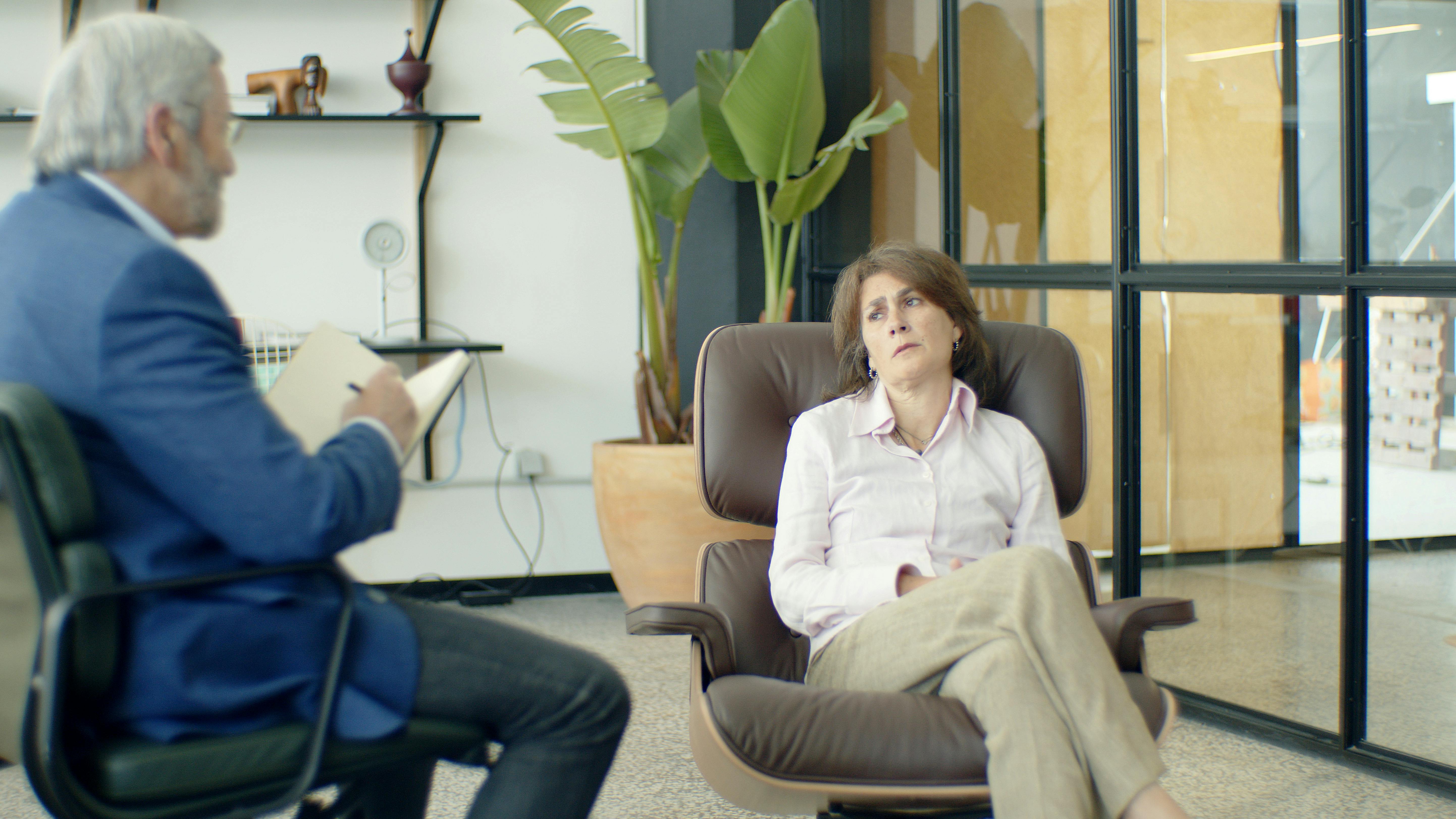Have you recently gone through a challenging divorce or separation, and are concerned about the well-being and safety of your child during visitation? Look no further than Private Supervised Visitation Services. We understand the importance of fostering a nurturing and secure environment for your child, which is why our team of highly trained professionals is dedicated to providing comprehensive supervision during visitation. With our private supervised visitation services, you can rest assured knowing that your child’s needs and safety are our top priority.

Overview of Private Supervised Visitation Services
Private supervised visitation refers to a service that provides a safe and controlled environment for parents and their children to have supervised interactions. This type of visitation is often utilized in situations where there are concerns about the child’s safety or well-being when alone with one or both parents. Private supervised visitation services aim to protect the child’s best interests while facilitating positive parent-child interactions.
Definition of Private Supervised Visitation
Private supervised visitation involves the presence of a neutral third-party supervisor who ensures the well-being and safety of the child during the visitation. The supervisor is responsible for observing and documenting the interactions between the parent and child, providing a detailed report of each visit. This type of visitation can take place in a variety of settings, including the home of the noncustodial parent, a neutral location, or a supervised visitation center.

Importance of Private Supervised Visitation
Private supervised visitation plays a crucial role in ensuring the safety and well-being of a child during visitation with a parent. It provides a structured and supervised environment in which the child can maintain a relationship with both parents, even when there are concerns about the parent’s behavior or the child’s safety. By allowing for supervised visitation, potential risks can be identified and mitigated while promoting healthy parent-child interactions.
Benefits of Private Supervised Visitation
Private supervised visitation offers several benefits to both the child and parents involved. For the child, it provides a safe space where they can engage with the noncustodial parent without feeling threatened or at risk. It allows for a gradual and supervised reintroduction of the parent into the child’s life, which can be beneficial in cases involving estrangement or a long absence. For parents, private supervised visitation offers the opportunity to rebuild trust, improve parenting skills, and work towards successful reunification with their child.

The Process of Private Supervised Visitation
Initial Assessment
The process of private supervised visitation typically begins with an initial assessment conducted by the visitation provider. This assessment involves gathering information about the family’s history, court orders, safety concerns, and any relevant background information. The provider will evaluate the specific needs and circumstances of the family to determine the appropriate level of supervision required during visitation.
Developing a Visitation Plan
Once the initial assessment is complete, a visitation plan is developed in collaboration with the parents and any legal professionals involved. The plan outlines the logistics of visitation, including frequency, duration, and location. It also specifies any specific conditions or restrictions that need to be followed during the supervised visits to ensure the safety and well-being of the child.
Supervision during Visitation
During the supervised visits, a trained supervisor is present to monitor and facilitate interactions between the parent and child. The supervisor ensures that the visitation is conducted in accordance with the visitation plan and any court orders. They observe the interactions, document any significant events or concerns, and intervene if necessary to ensure the child’s safety and emotional well-being.
Creating Detailed Visit Reports
After each supervised visit, the visitation supervisor prepares a detailed visit report. This report includes observations of the visit, any notable incidents or concerns, and an assessment of the parent’s behavior and interaction with the child. These reports are typically shared with the court, attorneys, and social workers involved in the case to provide an objective record of the visits.
Choosing a Private Supervised Visitation Provider
Researching Available Providers
When choosing a private supervised visitation provider, it is important to conduct thorough research to ensure their reliability and reputation. Look for providers with experience and expertise in the field of supervised visitation, as well as positive client testimonials and reviews. It can be helpful to seek recommendations from legal professionals or other trusted individuals who have utilized supervised visitation services in the past.
Evaluating Credentials and Experience
When evaluating potential visitation providers, consider their credentials and experience. Look for providers who have undergone specialized training in supervised visitation, child development, conflict resolution, and safety protocols. It is also important to ensure that the provider adheres to ethical and professional standards, such as membership in relevant professional associations or organizations.
Determining Cost and Payment Options
The cost of private supervised visitation services can vary depending on factors such as location, duration of visits, and the scope of supervision required. It is important to determine the cost of the services and whether it aligns with your budget. Additionally, inquire about payment options, such as hourly rates, package deals, or sliding-scale fees, to ensure that the financial aspect is manageable.
Reading Reviews and Client Testimonials
Reading reviews and client testimonials can provide valuable insights into the experiences of others who have utilized the services of a private supervised visitation provider. Look for reviews that highlight professionalism, reliability, and positive outcomes. Pay attention to any specific concerns or criticisms mentioned in the reviews and consider how they align with your own needs and expectations.

The Role of a Private Supervised Visitation Supervisor
Ensuring Child Safety and Well-being
The primary responsibility of a private supervised visitation supervisor is to ensure the safety and well-being of the child during the visitation. They closely observe the interactions, assess the environment for any potential risks, and intervene if necessary to protect the child from harm. The supervisor maintains a vigilant presence while promoting a sense of security and comfort for both the child and parent.
Maintaining Neutrality and Objectivity
A crucial aspect of the supervisor’s role is to maintain neutrality and objectivity throughout the visitation process. They must not take sides or favor one parent over the other, focusing solely on the best interests of the child. By remaining unbiased, the supervisor can create an environment where both parents feel heard and respected, fostering a more constructive and cooperative atmosphere.
Handling Conflict and Difficult Situations
Conflict and difficult situations may arise during supervised visitation, and it is the role of the supervisor to effectively address and manage them. They should be skilled in de-escalation techniques, conflict resolution, and communication strategies to promote a calm and harmonious visitation experience. The supervisor’s presence helps diffuse tense situations and ensures the visitation remains a positive and safe experience for the child.
Facilitating Positive Parent-Child Interactions
The presence of a visitation supervisor can have a positive impact on the parent-child relationship. They can provide guidance, support, and feedback to help parents improve their interaction and parenting skills. The supervisor may offer suggestions for engaging activities, promote healthy communication, and encourage bonding between the parent and child. Their presence can contribute to the overall improvement of the parent-child dynamic.
Criteria for Eligibility for Private Supervised Visitation
Court Orders and Legal Requirements
Private supervised visitation is typically ordered by a court or mandated by a legal agreement. To be eligible for these services, there must be a legal requirement or court order specifying the need for supervised visitation. The court order may be based on factors such as a history of domestic violence, substance abuse, or concerns regarding the child’s safety.
Risk Assessment and Child Protection
Eligibility for private supervised visitation may also be determined through a risk assessment process. This involves evaluating the potential risks to the child’s safety and well-being, considering factors such as the parent’s history of violence, substance abuse or mental health issues. If the risk assessment indicates a need for supervision, private supervised visitation may be recommended.
Parental History and Behavior
The behavior and history of each parent are taken into consideration when determining eligibility for private supervised visitation. Factors such as past incidents of violence, substance abuse, or neglect will be assessed. If there are concerns about the parent’s ability to provide a safe environment for the child, private supervised visitation may be deemed necessary.
Special Circumstances and Considerations
Certain special circumstances may also warrant the need for private supervised visitation. This could include situations where the child has had minimal or no previous contact with the noncustodial parent and requires a gradual reintroduction. It could also apply to cases involving high levels of conflict between parents that may impact the child’s emotional well-being.
The Role of Private Supervised Visitation in Reunification
Supporting Parent-Child Reconnection
Private supervised visitation plays a critical role in facilitating the reconnection between a parent and child. In cases where there has been a period of separation or estrangement, supervised visitation provides an opportunity for the parent and child to reconnect in a safe and controlled environment. Over time, this can help rebuild trust and strengthen the parent-child bond.
Ensuring a Safe Transition
Private supervised visitation helps ensure a safe transition for the child when reintroducing a parent into their life. The presence of a neutral third-party supervisor provides a sense of security and can help ease any anxiety or apprehension the child may have. The supervisor acts as a bridge between the parents, ensuring that the child’s transition from one household to another is smooth and emotionally safe.
Assisting with Coparenting Improvement
Private supervised visitation can also assist in improving the coparenting relationship between separated or divorced parents. Through supervised visitation sessions, parents have the opportunity to observe and learn from each other’s parenting styles. The supervisor may provide feedback and guidance to help parents develop more effective communication and coparenting strategies.
Providing Professional Oversight
Private supervised visitation services offer professional oversight during visitation, ensuring that the visits comply with any court orders or legal requirements. The presence of a trained and experienced supervisor helps maintain accountability and provides a record of the visits. This can be particularly beneficial in cases where ongoing court involvement or monitoring is necessary.
Confidentiality and Privacy in Private Supervised Visitation
Ensuring Secure and Private Sessions
Confidentiality and privacy are crucial aspects of private supervised visitation services. The provider should have protocols in place to ensure the privacy and security of the participants during the visits. This may include measures such as private waiting areas, soundproof rooms, or other strategies to protect the identity and personal information of the involved parties.
Adherence to Confidentiality Standards
Private supervised visitation providers should adhere to strict confidentiality standards to protect the privacy of the families they work with. This includes respecting the sensitive information shared during the assessment process and maintaining the confidentiality of any records or documentation related to the visits. All staff members should be trained in the importance of confidentiality and be aware of the potential legal consequences of breaching confidentiality.
Procedures for Handling Sensitive Information
Private supervised visitation providers should have comprehensive procedures in place for handling sensitive information. This may include secure storage of records, limiting access to confidential information, and proper disposal of documents when they are no longer needed. It is essential for providers to have protocols in place to protect sensitive information from unauthorized access or disclosure.
Data Protection and Legal Compliance
Private supervised visitation services should also prioritize data protection and comply with relevant legal requirements. This may include complying with data protection laws, seeking informed consent for the use of personal information, and implementing appropriate security measures to prevent data breaches. Providers should be transparent about their data protection practices and inform participants about how their information will be collected, used, and stored.
Alternatives to Private Supervised Visitation
Supervised Visitation Centers
Supervised visitation centers can provide an alternative to private supervised visitation services. These centers typically offer a neutral and controlled environment where supervised visits can take place. They have trained staff on-site to monitor the visits and ensure the safety and well-being of the child. Supervised visitation centers can be particularly beneficial in cases where a high level of supervision is required or when there are concerns about the safety of the visitation exchanges.
Family or Friends as Supervisors
In some cases, family members or trusted friends may be suitable as supervisors for supervised visitation. This can be an option when a neutral third-party supervisor is not required, and there is a high level of trust between the parents and the chosen supervisor. It is crucial to evaluate the qualifications and impartiality of the chosen supervisor and ensure that they can effectively fulfill the role without compromising the child’s safety or the visitation process.
Virtual or Remote Supervised Visitation
With the advancement of technology, virtual or remote supervised visitation has become another option for families. This involves using video conferencing or other digital platforms to facilitate and monitor the visitation between the parent and child. While virtual supervised visitation can provide convenience, it may not be suitable for all families or cases, particularly those involving young children or complex dynamics.
Unsupervised Visitation
Unsupervised visitation may be an option for some families once specific concerns have been addressed or resolved. Unsupervised visitation allows the parent and child to spend time together without the presence of a third-party supervisor. However, unsupervised visitation should only be considered when it is deemed safe and appropriate for the child’s well-being. The decision to transition from supervised to unsupervised visitation should be made in consultation with legal professionals and based on the best interests of the child.
Challenges and Limitations of Private Supervised Visitation
Lack of Regulation and Oversight
One challenge associated with private supervised visitation is the lack of standardized regulation and oversight. Unlike supervised visitation centers, private providers may not be subject to the same level of scrutiny or monitoring. It is important for families to thoroughly research and choose a reputable and experienced provider to ensure the highest standards of safety and care.
Financial Implications and Affordability
Private supervised visitation services can be costly, which may pose financial implications for families. The cost of the services should be carefully considered, and families should explore alternative payment options or financial assistance programs if needed. It is crucial to find a balance between affordability and ensuring the safety and well-being of the child during visitation.
Limited Availability of Providers
Private supervised visitation providers might not be readily available in all locations or communities. This limited availability can pose challenges for families seeking supervised visitation services. It may require families to travel long distances or face delays in accessing the services they need. Additionally, limited availability can also lead to a higher demand for services, potentially impacting the scheduling of visitation sessions.
Potential Bias or Conflict of Interest
Private supervised visitation providers should be impartial and avoid any conflicts of interest. However, there is always the potential for bias or conflicts to arise. It is crucial to choose a provider that demonstrates a commitment to neutrality, professionalism, and ethical conduct. Families should feel confident that their provider is focused on the best interests of the child and can provide unbiased supervision and support.
Legal Considerations in Private Supervised Visitation
Court Orders and Compliance
Private supervised visitation services operate within the framework of court orders or legal agreements. It is essential for all parties involved to comply with these orders and ensure that the terms of visitation are followed. Failure to adhere to court orders or legal requirements can have legal consequences and may impact future visitation arrangements.
Adherence to Parenting Plans
Private supervised visitation services should align with any existing parenting plans or custody agreements. The visitation plan developed by the provider should not conflict with or override the terms outlined in the parenting plan. Open communication between the provider, parents, and legal professionals is crucial to ensure that all parties are working together to uphold these agreements.
Documentation and Record-keeping
Private supervised visitation providers should maintain accurate and detailed records of each supervised visit. These records should include information such as the date, duration, and location of the visit, as well as any significant incidents or observations. Proper documentation is essential to provide objective evidence of the visitation process and can be used to support legal proceedings or future decision-making.
Mediation and Conflict Resolution
In cases where conflicts or disagreements arise during the supervised visitation process, mediation and conflict resolution techniques may be employed. Mediation can offer an opportunity for parents to address their concerns and work towards effective solutions with the help of a neutral third-party mediator. Effectively managing conflicts can help reduce tension and create a more positive visitation experience for the child.
In conclusion, private supervised visitation services play a vital role in ensuring the safety and well-being of children during visitation with their parents. By providing a structured and supervised environment, private supervised visitation services help protect the child’s best interests while facilitating positive parent-child interactions. It is important for families to carefully research and select a reputable provider who can meet their specific needs and ensure the highest standards of care and professionalism. Through the utilization of private supervised visitation services, families can work towards successful reunification, improve coparenting relationships, and promote the overall well-being of the child.
